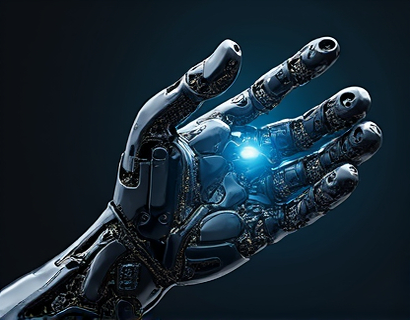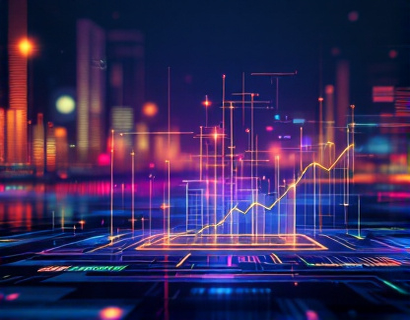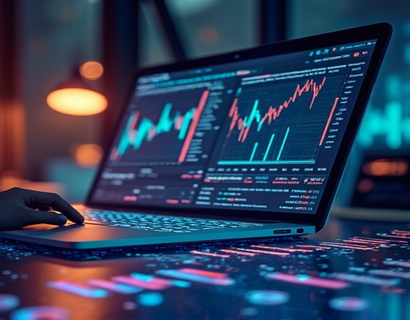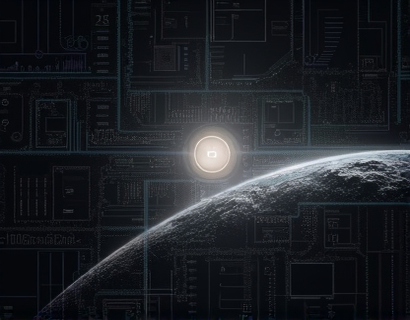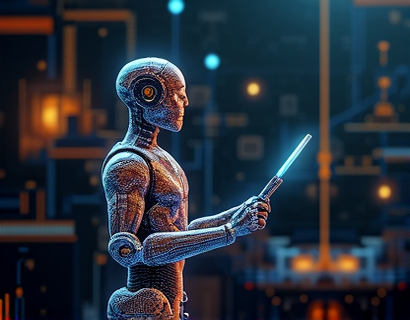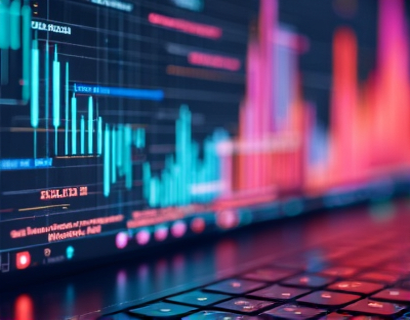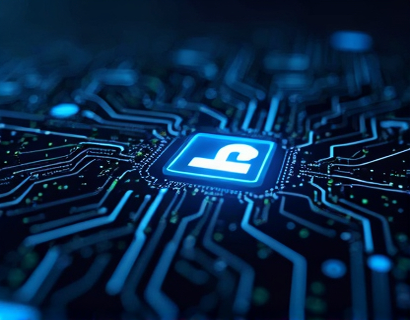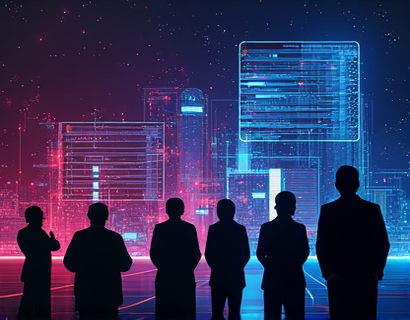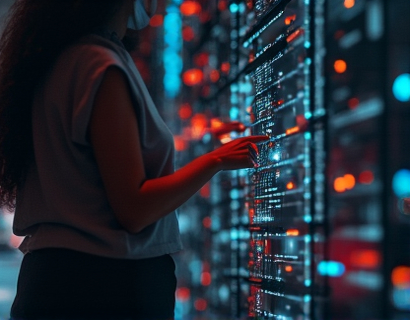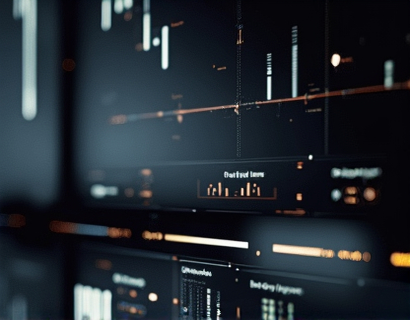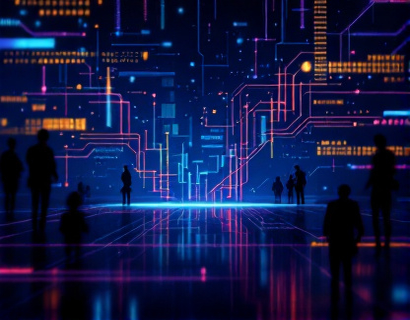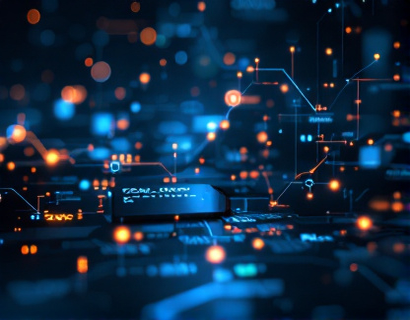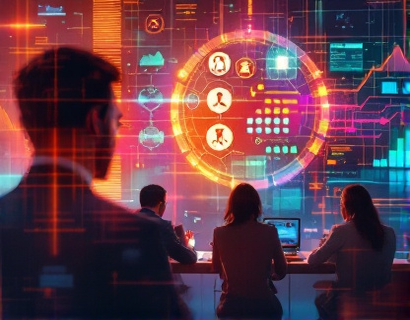Crypto and AI Catalysts: Transforming Digital Experiences with Next-Gen Ucosystem Solutions
The intersection of blockchain technology and artificial intelligence (AI) is giving rise to a new era of digital interactions, one that promises to revolutionize how we engage with online platforms and services. This transformative journey is not just about adopting new technologies but about creating a seamless, secure, and highly personalized digital experience. For tech pioneers and early adopters, understanding the synergy between crypto and AI is crucial for harnessing the future of connectivity and innovation.
Understanding the Synergy Between Blockchain and AI
Blockchain technology, known for its role in cryptocurrencies, offers a decentralized and transparent way to manage data and transactions. AI, on the other hand, excels in processing vast amounts of data to provide insights and automate complex tasks. When combined, these technologies can create a powerful ecosystem that enhances security, efficiency, and user experience.
The convergence of blockchain and AI is particularly significant in the context of digital identity management. Blockchain provides a secure and immutable ledger for storing identity data, while AI can manage and verify this data in real-time, ensuring that only authorized users access specific information. This synergy not only enhances security but also simplifies the user experience by reducing the need for multiple login credentials and password management.
Enhancing Security Through Crypto and AI
Security is a paramount concern in the digital world, and the integration of blockchain and AI offers robust solutions. Blockchain's decentralized nature makes it inherently resistant to single points of failure, reducing the risk of data breaches. AI, with its advanced analytics capabilities, can detect and respond to potential threats in real-time, further fortifying the security framework.
For instance, AI-driven algorithms can monitor network activity for unusual patterns that may indicate a security breach. These algorithms can automatically trigger responses, such as isolating affected areas of the network or alerting administrators. When combined with blockchain's tamper-proof records, this creates a multi-layered security approach that is both proactive and reactive.
Personalization and User Experience
One of the most exciting aspects of the crypto and AI convergence is the potential for highly personalized digital experiences. AI algorithms can analyze user behavior and preferences to tailor content and services to individual needs. This level of personalization is not only more engaging but also more efficient, as users receive relevant information and recommendations without the need for manual selection.
In the context of online platforms, this means that users can enjoy a more intuitive and streamlined experience. For example, a streaming service powered by AI and blockchain can recommend shows and movies based on a user's viewing history, while ensuring that the recommendation process is secure and the user's data is protected.
Decentralized Applications and Smart Contracts
Decentralized applications (dApps) are a prime example of how blockchain and AI can transform digital interactions. dApps operate on blockchain networks, leveraging smart contracts to automate and enforce agreements without the need for intermediaries. AI can enhance dApps by providing intelligent decision-making capabilities, optimizing performance, and ensuring seamless user interactions.
Smart contracts, self-executing contracts with the terms directly written into code, can be programmed to trigger actions based on specific conditions detected by AI. For instance, a smart contract could automatically release funds to a service provider once AI verifies that the service has been completed to the user's satisfaction. This not only increases efficiency but also builds trust through transparency and automation.
Supply Chain Transparency and Efficiency
The supply chain industry stands to benefit greatly from the integration of blockchain and AI. Blockchain can provide a transparent and immutable record of every step in the supply chain, from production to delivery. AI can analyze this data to optimize logistics, predict demand, and identify bottlenecks.
For example, AI algorithms can process real-time data from sensors on shipping containers to monitor temperature, humidity, and other conditions critical for certain goods. If the AI detects an anomaly, it can trigger alerts and automatically adjust routes or storage conditions to ensure product integrity. Blockchain ensures that all these transactions are recorded and verifiable, enhancing trust and accountability throughout the supply chain.
Financial Services and Crypto Integration
In the financial sector, the combination of blockchain and AI is reshaping how services are delivered and managed. Cryptocurrencies, powered by blockchain, offer a decentralized and secure way to conduct transactions, reducing the need for intermediaries and lowering costs. AI can enhance these services by providing advanced fraud detection, risk assessment, and personalized financial advice.
For instance, AI-driven algorithms can analyze transaction patterns to identify potential fraud in real-time, alerting users and preventing losses. Additionally, AI can assess a user's financial behavior and history to offer tailored investment recommendations, helping users make informed decisions and optimize their portfolios.
Healthcare Innovations
The healthcare industry is another area where the fusion of blockchain and AI can drive significant improvements. Blockchain can secure patient data, ensuring privacy and compliance with regulations like GDPR. AI can analyze this data to provide insights for diagnosis, treatment, and research.
For example, AI algorithms can process medical records and genetic data to identify patterns and predict disease outcomes. Blockchain ensures that this data is securely shared between healthcare providers, enabling a more coordinated and effective approach to patient care. Smart contracts can automate the consent process for data sharing, ensuring that patients have control over their information.
Challenges and Considerations
While the potential benefits are substantial, the integration of blockchain and AI also comes with challenges. One of the primary concerns is scalability. Blockchain networks, particularly those using proof-of-work consensus mechanisms, can struggle with high transaction volumes. AI algorithms require significant computational power, which can strain resources and increase costs.
Another consideration is the regulatory landscape. As these technologies evolve, governments and regulatory bodies are beginning to establish guidelines and standards. Compliance with these regulations is essential to avoid legal issues and ensure public trust.
Future Outlook
The future of digital experiences is increasingly intertwined with blockchain and AI. As these technologies continue to mature, we can expect even more innovative applications and solutions. The key for tech pioneers and early adopters is to stay informed and adaptable, embracing the opportunities while addressing the challenges.
By leveraging the power of crypto and AI, we can create a more secure, efficient, and personalized digital world. Whether you are a developer, a business leader, or a curious individual, understanding and engaging with these technologies will be crucial for success in the next generation of connectivity and innovation.




